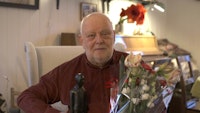Field of study: Music Education
Anne Jordhus-Lier: Institutionalising versatility, accommodating specialists
A discourse analysis of music teachers’ professional identities within the Norwegian municipal school of music and arts.
Summary
The aim of the PhD study is to investigate the professional identities of music teachers working in the Norwegian municipal school of music and performing arts. The study examines the teachers’ professional identities, by investigating competing discourses in the school of arts and how teacher identities are constructed within them.
Theoretical approach
The study has a discourse theoretical approach (Laclau & Mouffe 2001), in which identities are understood as identification with subject positions. It also builds on theories of professions (Abbott 1988; Freidson 2001; Molander & Terum 2008b), adding a frame for discussing what it means for an occupational group to be a profession and providing an entrance to better understand which subject positions are constructed and tensions created.
Material and methods
The research methodology employs qualitative methods and discourse analysis. Semi-structured interviews with sixteen music teachers from three different schools are analysed, together with document material, including former and current curriculum frameworks (Norsk kulturskoleråd 2003, 2016) and policy documents from the former and current government (Conservative Party 2015; Ministry of Culture 2009; Ministry of Education and Research 2014; Office of the Prime Minister 2013). While music teacher identity has been the subject of several studies, this study is unique in examining the professional identities of music teachers working in the Norwegian school of music and performing arts. This study, therefore, contributes to existing knowledge.
Findings
The study has identified several institutional and teacher discourses competing to define the field. The institutional discourses compete to define what kind of institution the school of arts should be, while the teacher discourses compete to define the role of its practitioners. None of the discourses has hegemony; rather the study has found the field to be open, with several discourses standing in binary opposition to each other. Within these binaries, central aspects of the school of arts are defined and contested. The analysis has identified the institutional discourses of breadth and depth and the teacher discourses of versatility and specialisation as the most central. In the binary breadth–depth, the breadth discourse is identified as dominant in the data material. This is articulated through the notion of the school of arts as having a broad mandate to include all children, and to take responsibility for arts education in general. The depth discourse is also present, with the signifiers ‘individualism’ – as every child should be able to choose which activities to participate in – and ‘quality’ – as it is secured through specialisation and depth – being central. Further, the analysis has revealed that while the institutional discourse of breadth is dominant in policy documents, the teacher discourse of specialisation is dominant in the interview material. This does create some tension.
The dissertation
Title:
The dissertation is a monograph, and it is written in English.
The dissertation is available in NMH's digital archive (nva.sikt.no)
Articles relevant
Published: Jun 16, 2014 — Last updated: Dec 18, 2025
